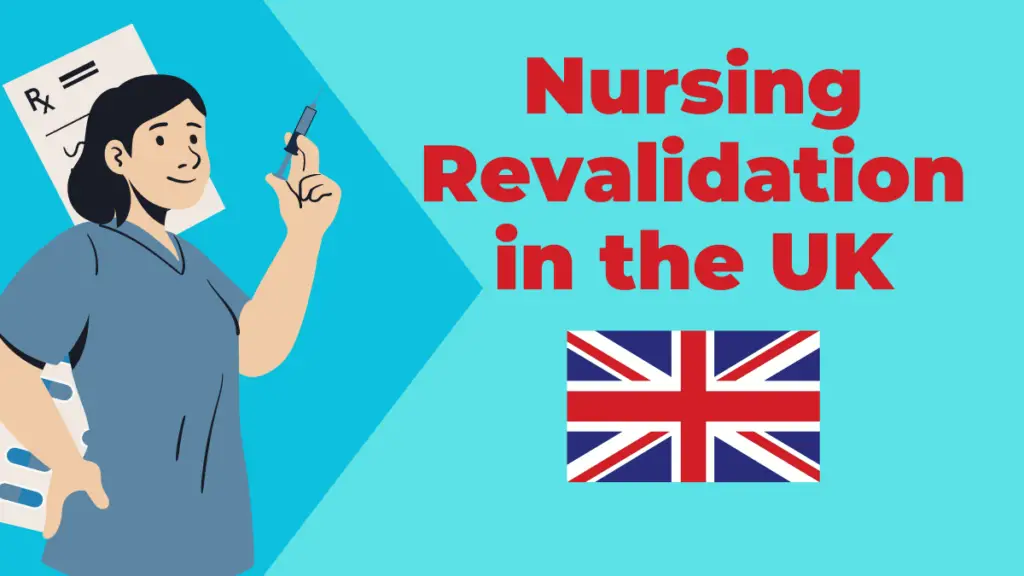In the ever-evolving landscape of healthcare, ensuring the competence and proficiency of nursing professionals is paramount. In the United Kingdom, nursing revalidation stands as a cornerstone for maintaining high standards of patient care and professional accountability. In this comprehensive guide, we delve into the intricacies of nursing revalidation in the UK, offering invaluable insights for both seasoned practitioners and those new to the field.
Understanding Nursing Revalidation
What is Nursing Revalidation?
Nursing revalidation is a mandatory process introduced by the Nursing and Midwifery Council (NMC) in the UK to uphold the standards of nursing practice and ensure ongoing professional development. It requires nurses and midwives to demonstrate their continued fitness to practice every three years, thereby promoting excellence in patient care.
Key Components of Nursing Revalidation
- Continuing Professional Development (CPD): Nurses are required to engage in CPD activities to enhance their knowledge, skills, and competence. These activities encompass a wide array of learning experiences, including workshops, courses, conferences, and reflective practices.
- Practice-Related Feedback: Gathering feedback from colleagues, patients, and other healthcare professionals is integral to the revalidation process. This feedback offers valuable insights into the nurse’s clinical practice, communication skills, and overall performance.
- Reflective Practice: Reflective practice forms the cornerstone of nursing revalidation, encouraging nurses to critically evaluate their experiences, decisions, and actions. This self-assessment fosters continuous improvement and enhances patient outcomes.
- Professional Indemnity Insurance: Nurses must maintain adequate professional indemnity insurance coverage throughout the revalidation period, ensuring financial protection in the event of litigation or claims of negligence.
Table: Overview of Nursing Revalidation Requirements
| Component | Description |
|---|---|
| Continuing Professional Development (CPD) | Engage in ongoing learning activities to enhance knowledge, skills, and competence. |
| Practice-Related Feedback | Gather feedback from colleagues, patients, and healthcare professionals to evaluate clinical practice and performance. |
| Reflective Practice | Engage in critical reflection to evaluate experiences, decisions, and actions for continuous improvement. |
| Professional Indemnity Insurance | Maintain adequate insurance coverage to ensure financial protection in the event of litigation or claims. |
Navigating the Revalidation Process
Preparing for Revalidation
- Gathering Evidence: Nurses must meticulously document their CPD activities, practice-related feedback, and reflective accounts to compile a comprehensive revalidation portfolio. This portfolio serves as evidence of their ongoing professional development and competency.
- Seeking Feedback: Actively seeking feedback from colleagues, patients, and supervisors provides valuable insights into areas of strength and areas for improvement. This feedback should be documented and reflected upon as part of the revalidation process.
- Reflective Writing: Engaging in reflective writing allows nurses to critically analyze their clinical experiences, challenges, and successes. By documenting these reflections in their revalidation portfolio, nurses demonstrate their commitment to self-improvement and patient-centered care.
Submitting the Revalidation Application
- Online Submission: Nurses are required to submit their revalidation application through the NMC’s online portal. This application includes the compilation of evidence, confirmation from a confirmer (a registered healthcare professional), and payment of the revalidation fee.
- Verification Process: Upon submission, the NMC verifies the completeness and accuracy of the revalidation application. This may involve random audits or requests for additional documentation to ensure compliance with revalidation requirements.
- Confirmation of Revalidation: Once the revalidation application is approved, nurses receive confirmation of their revalidation status from the NMC. This confirmation signifies their continued eligibility to practice as a registered nurse or midwife in the UK.
Benefits of Nursing Revalidation
- Enhanced Patient Safety: By promoting ongoing professional development and accountability, nursing revalidation contributes to improved patient safety and quality of care.
- Career Advancement: Revalidation provides nurses with opportunities for career advancement and specialization, thereby enhancing job satisfaction and professional fulfillment.
- Professional Recognition: Successfully completing the revalidation process reaffirms nurses’ commitment to excellence and professionalism, earning them recognition within the healthcare community.
Conclusion
Nursing revalidation serves as a cornerstone for maintaining high standards of patient care and professional accountability in the UK. By embracing the principles of continuing professional development, reflective practice, and feedback, nurses can navigate the revalidation process with confidence and integrity. As guardians of public health, nurses play a pivotal role in shaping the future of healthcare, and revalidation ensures they are equipped with the knowledge, skills, and competence to excel in their roles.

